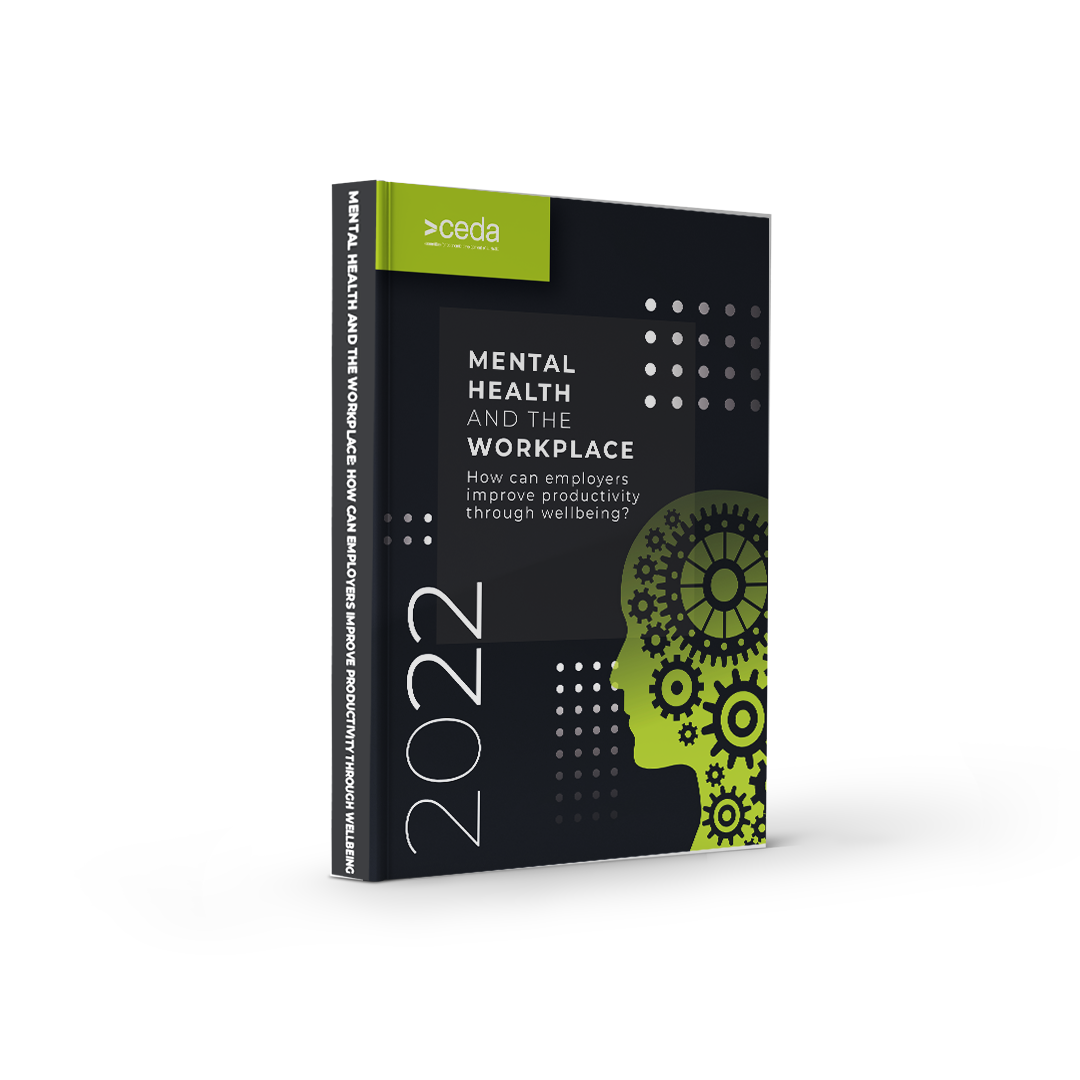PROGRESS 2050: Toward a prosperous future for all Australians
16/03/2023
Improving mental health in the workplace is an area where businesses can see real productivity gains, CEDA Senior Economist Cassandra Winzar told a Black Dog Institute Panel on Workplace Mental Health: A focus on prevention and early intervention.
With an estimated 3.5 million Australians suffering from mild to moderate mental health issues, recent findings from the Productivity Commission found that poor mental health costs the Australian economy $40 billion every year in workplace-related costs through loss of productivity and lower rates of participation.
CEDA’s Mental Health and the Workplace report found there is growing recognition that workplace health and safety is broader than just physical safety, and that psychological health is just as important to employees' wellbeing.
“It's about having a high-performing, thriving workplace, and to do that workplaces need to invest in the mental health of their employees,” Ms Winzar said.
“This is not just a nice-to-have, it's actually a really solid business decision," she said.
In addition to productivity gains, addressing mental health concerns can help organisations avoid the growing costs of workers’ health compensation claims.
“In the last 20 years, mental health-related workers’ compensation claims have actually increased by nearly 60 per cent and if we considered even modest growth assumptions going forward, we would expect that to double again by 2030,” Ms Winzar said.
“It's clearly costing businesses a lot of money and there really is a strong economic argument for intervention," she said.
CEDA’s report laid out a framework for businesses that prioritises building good foundations around mental health approaches.
“The key to this is around focusing on the foundational elements, so that's good job design, that's management capability and that's supportive leadership culture," Ms Winzar said.
"If you get all those right, the rest will come a lot more easily," she said.

Ms Winzar highlighted the tendency for organisations to implement ‘added extras’ at the expense of more impactful strategies.
“It might be an awareness morning tea, it might be fruit boxes, yoga classes,” she said.
"They're visible, so you can show to your employees that you're doing something, and they don't cost that much, but they're not actually really going to have a substantial impact on their employees’ mental health.
"Let's shift the conversation to those foundations.
"That will be where evidence shows you'll have a real impact, where you'll improve mental health outcomes and through that, improve productivity and business outcomes as well," she said.
Ms Winzar highlighted supportive leadership culture as the bedrock of any successful intervention in the workplace.
"Anything that you do without a really supportive leadership culture is just going to feel a bit tokenistic," she said.
CEDA identified management training as a key first step for organisations looking to improve their workplace mental health outcomes.
“The evidence around the really rigorous evidence-based management training, such as what the Black Dog Institute does, is really strong in terms of the impact it has on mental health,” Ms Winzar said.
“If organisations are looking for somewhere to start, management capability and management training might be the way to go,” she said.
_2.png)
